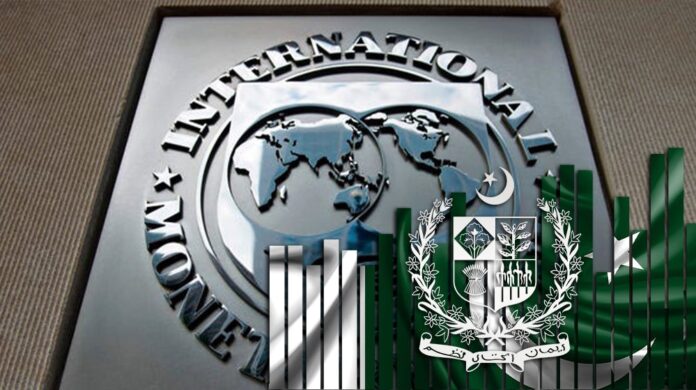- Govt discusses revisions to GDP growth from initial target of 4.2% to 3.9% due to devastating floods, and requests approval for PM Relief Package for flood-affected areas
The International Monetary Fund (IMF) has urged Pakistan to publish the Governance and Corruption Diagnostic (GCD) Assessment Report within the envisaged deadline of September 30, 2025, and amend the Government Servants (Conduct) Rules 1964 to enable action against officials involved in corrupt practices, The News reported.
The GCD Assessment reportedly flagged gaps in public finance management, the Federal Board of Revenue’s tax system, and the Accountant General Pakistan Revenues’ monitoring efforts. The Fund has requested timelines for implementing recommendations from the report.
During a maiden session with the visiting IMF review mission at the Ministry of Finance on Monday, Finance Minister Muhammad Aurangzeb discussed revisions to real GDP growth, now projected below 3.9% for the current fiscal year due to devastating floods, down from the initial target of 4.2%.
The finance minister briefed the IMF on macroeconomic performance, fiscal discipline, and flood-related damages. Officials said the government is expected to take unprecedented steps to bring civil servants’ financial affairs into the public domain, a move likely to face resistance within the bureaucracy but seen as essential for restoring public trust.
The Pakistani side also requested approval for a Prime Minister Relief Package for flood-affected areas using emergency budget funds, with the IMF asking for a Damage and Needs Assessment before granting any relief.
The IMF highlighted revenue surplus commitments from provinces totaling Rs1.5 trillion to help maintain the fiscal deficit within limits. Pakistan has pledged a primary surplus of 2.4% of GDP this fiscal year. Provincial losses from recent floods were also presented, including Rs40–50 billion in Khyber Pakhtunkhwa, while Punjab’s figures are yet to be shared.
On asset declaration, the IMF pressed for amendments to the Conduct Rules allowing officers in grades 17 to 22 to submit digital asset declarations. Discussions included assigning responsibility for monitoring and taking action against mismatches, with the FBR likely to oversee the mechanism.
A system is expected to be established by December 2025 to ensure full disclosure, penalties, and investigations for false reporting.
Pakistan currently has nearly 25,000 officers in grades 17 to 22, with concerns that many do not accurately declare holdings. Several institutions, including the State Bank, NEPRA, OGRA, and PTA, are currently exempt from disclosure requirements. The IMF’s demand aims to increase transparency, strengthen accountability, and close governance loopholes.
According to the news report, officials noted that public scrutiny of senior bureaucrats’ assets has historically been limited, fueling concerns over corruption and misuse of authority. The IMF also recommended separating the Tax Policy Unit from the FBR, a step now at its final stages under the Ministry of Finance.




